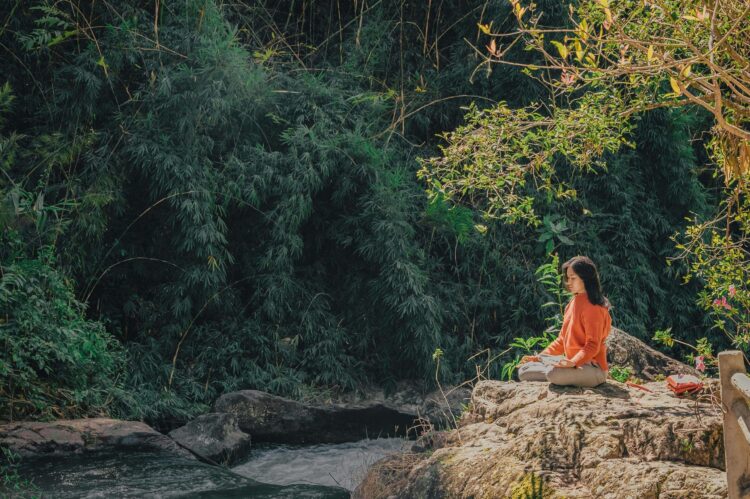Welcome to a compelling exploration of one of the most profound and often misunderstood journeys the human mind can undertake — the psychedelic experience. If you’re a spiritual seeker or a self-reflector chasing the boundaries of consciousness, this article is your bridge to comprehending and respectfully navigating through the kaleidoscopic world of psychedelics. The content we’re about to traverse combines scientific understanding, ancient wisdom, and modern context to accompany you through the thresholds of transformation.
What are psychedelics?
Defining psychedelics is not an easy task, as there are multiple perspectives and interpretations of these substances. In broad terms, psychedelics are a class of psychoactive substances that alter perception, mood, and cognitive processes. They can induce changes in sensory experiences, consciousness, and may even trigger mystical or spiritual states. Some of the most well-known psychedelics include LSD, magic mushrooms, DMT, and ayahuasca. These substances have been used for centuries in various cultures for spiritual purposes, healing ceremonies, and personal growth.
How do psychedelics work
The exact mechanisms of action for psychedelics are still being studied, but they primarily interact with the brain’s serotonin receptors, specifically the 5-HT2A receptor. This receptor plays a critical role in regulating mood, perception, and cognition. By binding to these receptors, psychedelics can temporarily disrupt the brain’s normal functioning and open up new patterns of thinking and experiencing the world.
Preparation for a psychedelic experience
Before embarking on a psychedelic journey, it’s crucial to prepare yourself physically, mentally, and emotionally. This process can take several days or weeks, depending on the individual and the substance they will be using. Some essential factors to consider during preparation include:
- Researching the substance: It’s essential to understand the effects, dosage, and potential risks associated with the specific psychedelic you will be taking. This information can help set realistic expectations and ensure a safe experience.
- Setting intentions: Clarifying your intention for the journey can guide your experience and give it meaning. It could be personal growth, spiritual exploration, or healing.
- Choosing a supportive setting: The environment in which you take psychedelics can significantly influence your experience. It’s crucial to choose a safe, comfortable, and peaceful space where you feel at ease.
- Having a trusted guide or sitter: A guide or sitter is someone who can provide support and guidance during the experience. This person should be sober, experienced with psychedelics, and someone you trust.
Psychedelic experience
The effects of psychedelics can vary significantly depending on the substance, dosage, and individual. Generally, the onset of a psychedelic experience can take anywhere from 20 minutes to several hours after ingestion. During this time, you may start experiencing changes in perception, mood, and thoughts.
As the effects continue to intensify, you will reach what is commonly known as the “peak” of the experience. This can be an intense and overwhelming period where you may encounter visuals, feelings of interconnectedness, and a sense of ego dissolution.
After the peak, the effects will gradually start to subside, leading into a period referred to as the “come down.” This phase can involve feelings of introspection, emotional release, and integration of the experience.
Potential challenges and how to navigate them
While psychedelics can offer powerful insights and transformation, they can also bring up challenging experiences. These may include anxiety, fear, or confronting past traumas. It’s essential to have a plan in place for navigating these challenges if they arise during your journey. Some strategies that may help include:
- Breathwork and grounding techniques: Focusing on your breath and connecting with your body can help ground you and reduce anxiety.
- Changing the setting or music: Sometimes a change in environment or music can shift the energy of the experience and bring more comfort.
- Seeking support from your guide/sitter: Your guide or sitter is there to support you, and they may have techniques to help you navigate difficult experiences.
Integration after the psychedelic experience
Integration is a crucial step in the psychedelic journey, and it involves processing and making sense of the insights and experiences gained during the trip. It’s essential to give yourself time and space for reflection and incorporate any new insights into your daily life. Some ways to integrate include:
- Journaling: Writing down your thoughts, feelings, and experiences can help make sense of them and track any changes or progress.
- Meditation and mindfulness practices: These techniques can help you stay present, process emotions, and integrate new insights into your daily life.
- Therapy or integration circles: Seeking support from a therapist or joining an integration circle can provide a safe space to discuss your experience and receive guidance on how to incorporate it into your life.
Legal and health considerations
It’s essential to note that psychedelics are still illegal in most countries and should only be used in controlled settings. They also come with potential health risks, including triggering or exacerbating mental health conditions. It’s crucial to consult a healthcare professional before using psychedelics, especially if you have any underlying medical conditions. Additionally, it’s important to follow harm reduction practices and use psychedelics responsibly.
Conclusion
The world of psychedelics is vast and complex, with the potential to offer profound insights and transformations. However, it’s crucial to approach these substances with knowledge, respect, and caution. With proper preparation, a supportive environment, and integration practices, a psychedelic experience can be a powerful tool for personal growth and healing. Remember to always prioritize safety and harm reduction when embarking on a psychedelic journey. So, continue your research and stay safe! Happy tripping! Remember to always prioritize safety and harm reduction when embarking on a psychedelic journey.



